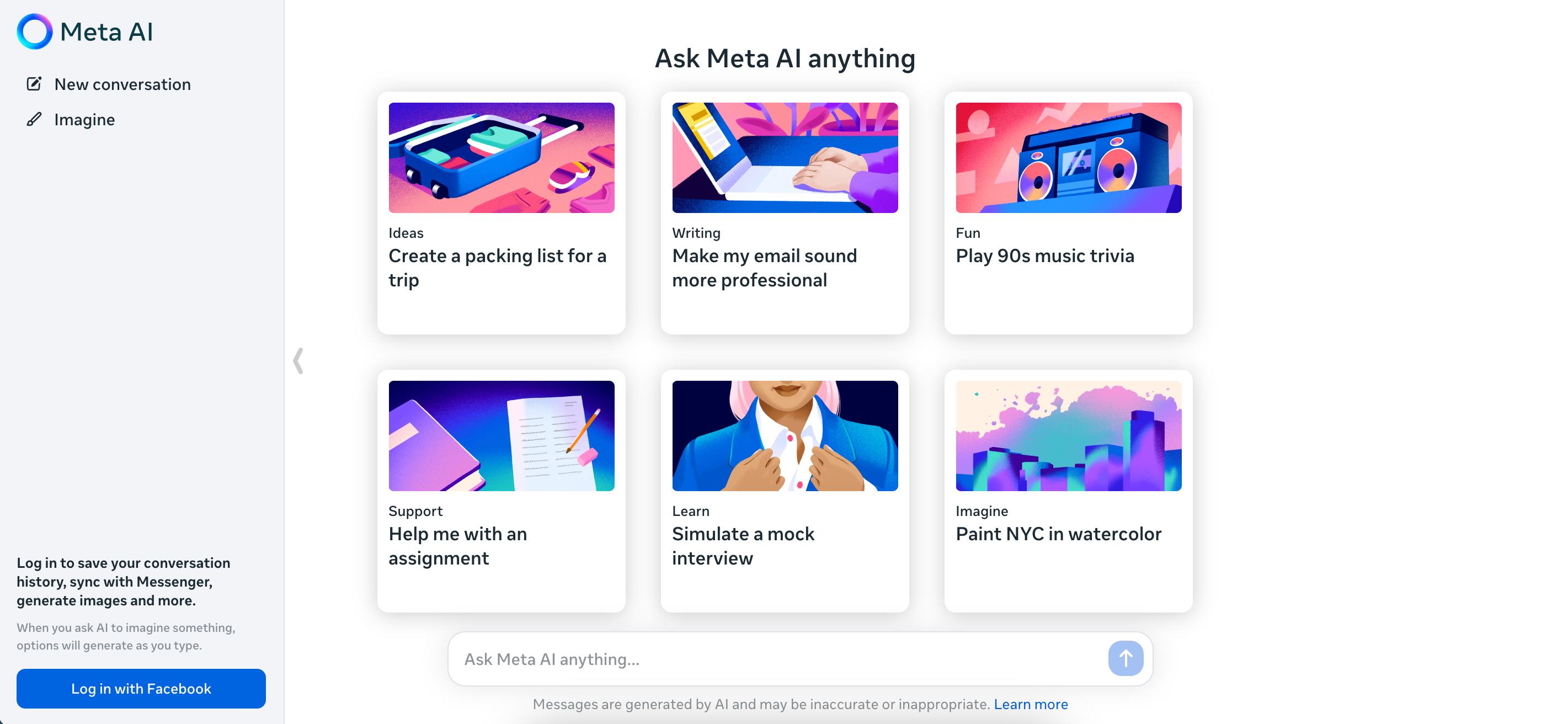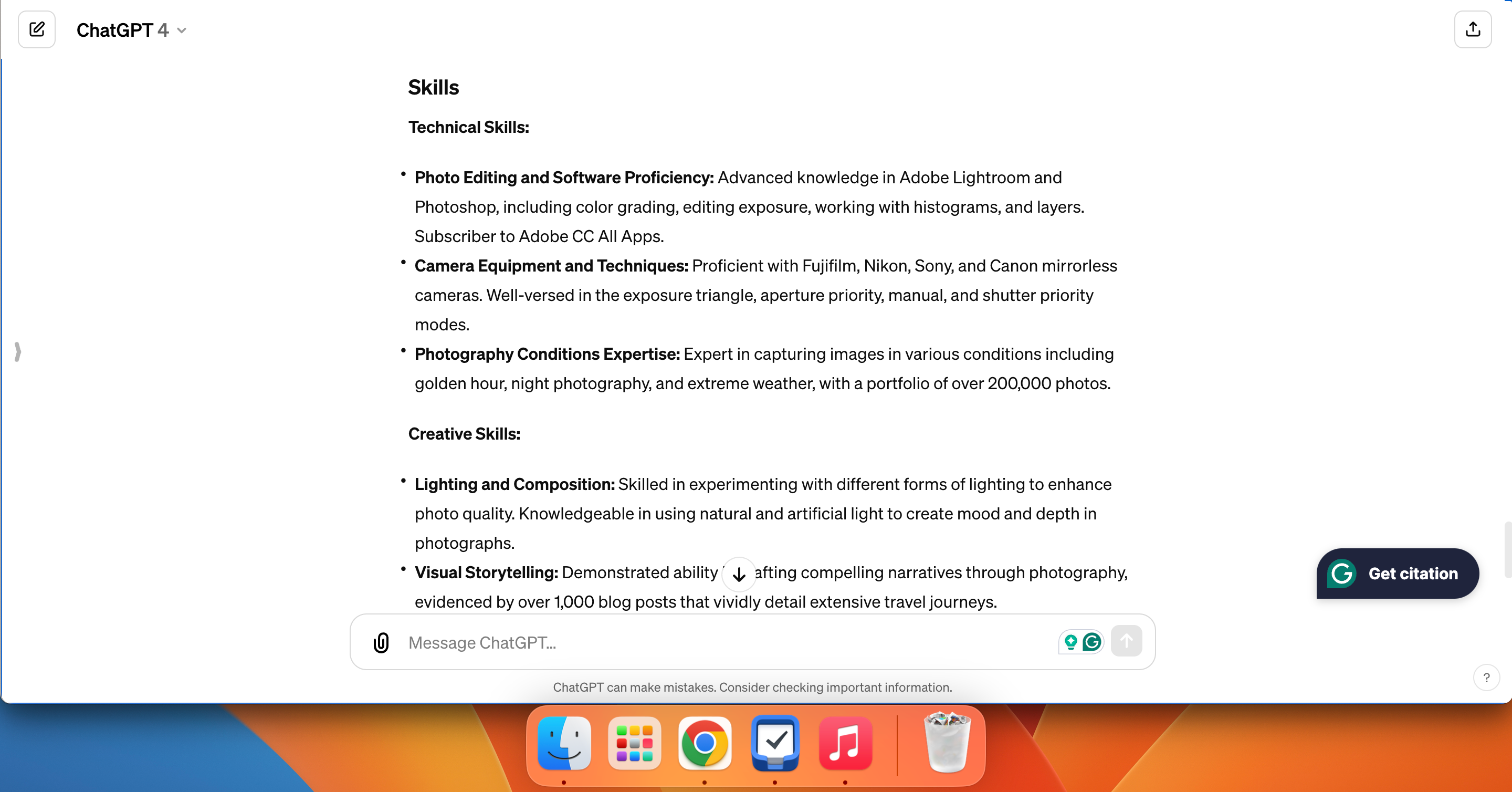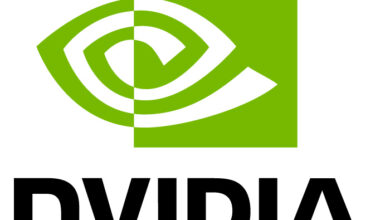Do We Really Need Generative AI on Social Media? I’d Argue No

Key Takeaways
- Social media platforms have spent more time implementing generative AI, such as Meta AI and Snapchat’s My AI.
- Despite the extra time being spent, I think generative AI on social media is quite pointless.
- Generative AI can also lead to privacy concerns and potential misinformation.
Generative AI is more relevant in some places than others. But one surprising area it’s increasingly prevalent is on social media. From privacy to user interest, here’s why I don’t think social platforms should focus on generative AI.
1 Most Ordinary Users Won’t Want to Use Generative AI
Although ChatGPT and Microsoft Copilot have made generative AI a mainstream conversation, I don’t think many people want to use it on social media. From conversations with friends and family, people normally use this technology for help with assignments, to find answers to questions, and similar things.
Let’s look at Meta AI as an example. You can do things like prepare for a job interview and make AI-generated art. I wouldn’t use Facebook for either of those things, so it feels a bit pointless having these features here.
You can argue that chatbots might be useful, but I’ll speak about why those could be an issue later.
2 Generative AI Could Remove Authenticity
While social media is by no means perfect when it comes to authenticity, one nice thing about using these apps is that you can express yourself in real-time. For example, when I had X (Twitter), I enjoyed sharing my thoughts as and when they arose.
Generative AI is beneficial for crafting better social media content and eliminating copy errors. However, one problem that could arise from the technology being integrated into social platforms is misuse for practices like engagement farming. Another issue is that AI can blur the line between reality and fantasy even more so than what already happens on social media.
I’ve spoken in the past about how I wish social media platforms would stick to one thing well instead of hopping on every technological trend. We saw this happen with short-form video content, and it’s now happening with AI. But in the same way that every TikTok clone couldn’t emulate the platform’s core offering, social media companies can’t—in my opinion—compete with the likes of ChatGPT.
If I need to use generative AI to find answers or create images, I’m not going to Facebook or Instagram. I bought a ChatGPT subscription because I think it’s the best tool on the market, and I’d still use the free version over Meta AI or any similar tool.
Having generative AI might get users to stay on platforms for longer, but I don’t think that’s going to be quality time.
While you can’t disable Meta AI, you can mute it. If that’s something you’d like to do, read our guide on
how to mute Meta AI
.
4 Potential Privacy Implications
Privacy concerns on social media are nothing new, with Cambridge Analytica being perhaps the most high-profile example. AI also has privacy risks, and there’s every chance that generative AI security issues could worsen. For example, open-source chatbots can reveal backend codes.
People might be open to a generative AI chatbot on programs like Copilot or ChatGPT, but social media can feel much riskier. While some personal information is linked to AI chatbots elsewhere, it’s not as much as on social media.
If you’re worried about how to keep your data safe in the current world, don’t worry. We’ve got some tips on protecting your privacy in the era of AI.
5 Generative AI Could Spread Misinformation
The 2016 Presidential Election and the COVID-19 pandemic are two clear examples of why you shouldn’t always trust social media. Platforms like Twitter and Facebook have long struggled with misinformation, and generative AI could make the problem worse.
AI has already received heat for misinformation. In April 2024, Grok AI came under fire for wrongly reporting that NBA star Klay Thompson was being accused of vandalizing houses.
We can argue all day about placing the responsibility on users to fact-check. But let’s be honest here: most people on social media aren’t going to do that. So, it’s a legitimate concern that social media platforms need to think about.
6 Most Users Won’t Know How to Use Generative AI
Having experimented with tools like ChatGPT, I can assure you that generative AI is not as simple as typing a prompt. You often need to experiment with multiple prompts and go into specific details before you get the results you want.
While AI will undoubtedly get better over time, most users won’t know how to use generative AI to its full potential. Some might also feel like the level of effort involved is more than if they just wrote the post themselves.
Any idea on mainstream social media needs mass appeal to take off, and if ordinary users don’t know how to use generative AI, this isn’t going to happen.
Despite the benefits of generative AI, I think that social media platforms are largely wasting their time by focusing too much on it. I’d argue that they’re better off improving their core products and offerings. If these companies continue pursuing generative AI, they also need to think about how to combat the main drawbacks.





